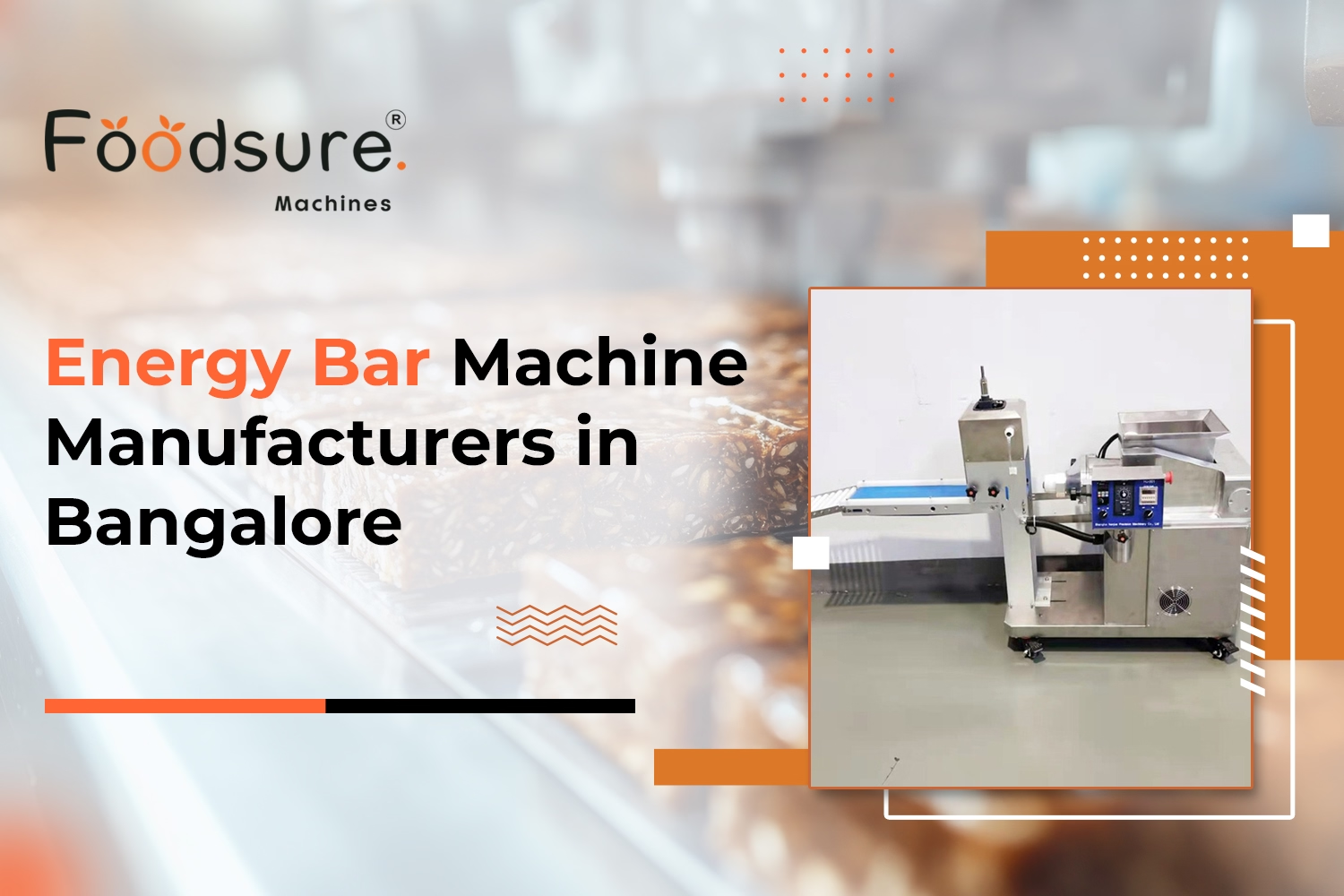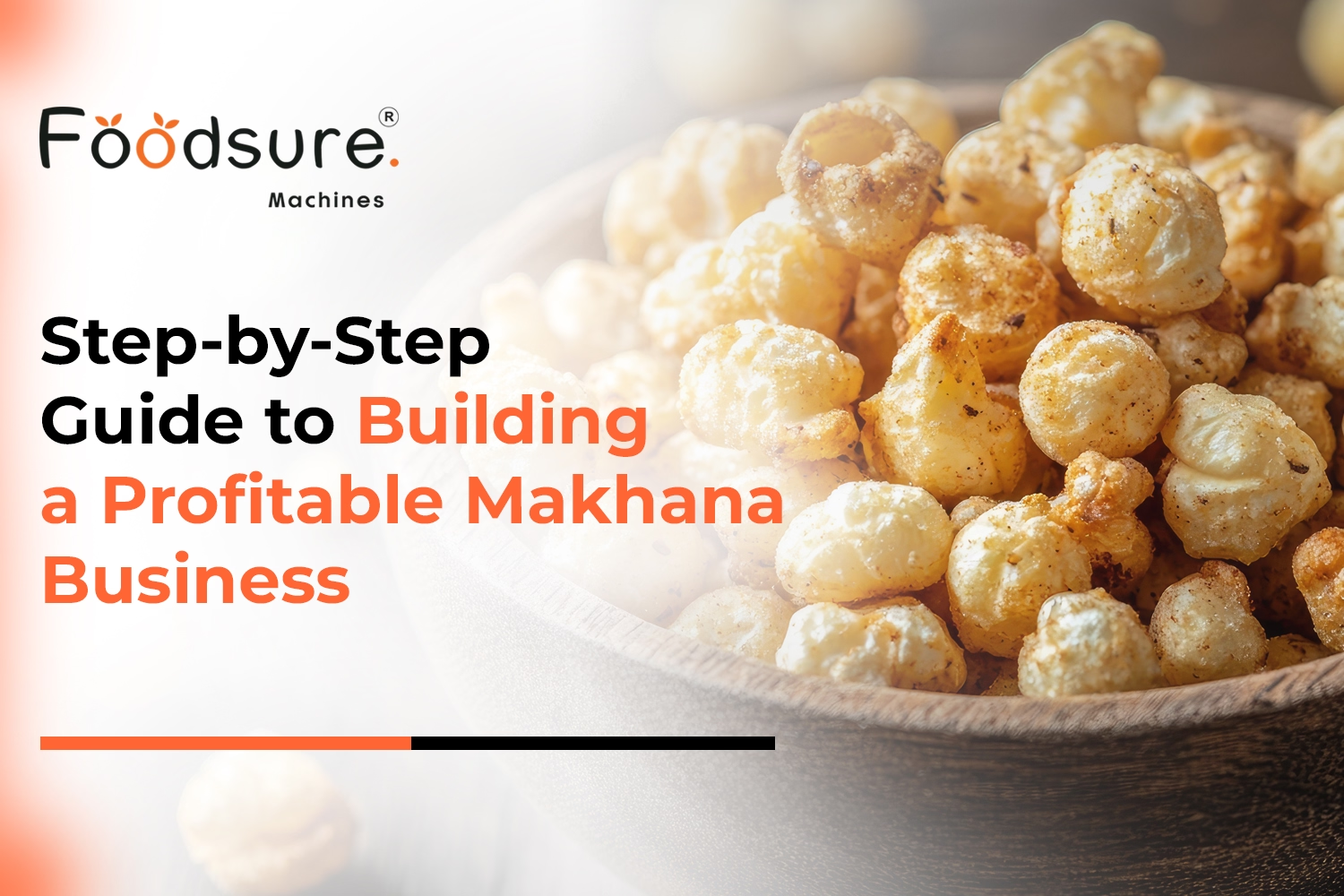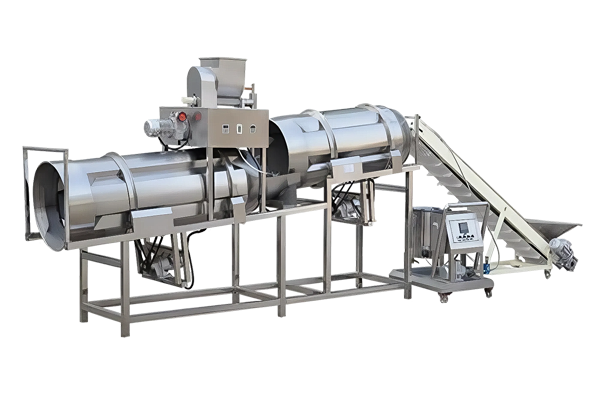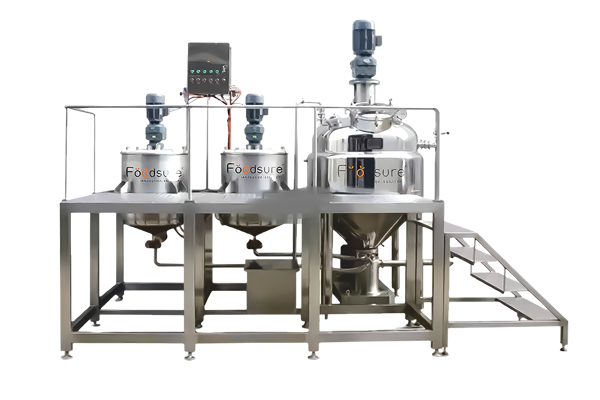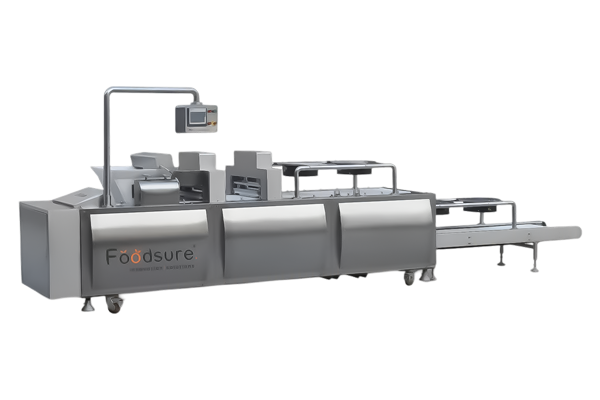Nowadays, with all the sugary and unhealthy snacks that drain energy rather than provide it, consumers are looking for healthier snacks. Protein bars provide taste and nutrition in one packaging solution. If you are considering a protein bar business, you are definitely filling a true need in the marketplace today. However, there is more to being successful than simply adding oats to whey. It takes the right strategy, tools, and action.
Why Start a Protein Bar Business Now?
The functional foods industry is expanding in India, and protein bars are at the forefront. The global protein bar market is anticipated to reach over USD 14.26 billion by 2024. The protein bar market in India was USD 863.9 million in 2024 (Statista) and is growing, with health-conscious urban consumers leading the growth.
This is your cue, as this is the time to enter this market. If you have considered protein bars, go for it. Whether as a sole proprietor or a food start-up, you could reasonably enter this space for much less than you ever thought you could if you put in the effort.
Craft the Right Recipe to Start a Protein Bar Business
Before you get into designing your label or consider any marketing, get a product to sell.
Protein Options:
- Whey: A high biological value protein has a branding history with strength training.
- Plant: Pea protein, soy protein, rice protein, or plant proteins would play into the vegan markets.
- Novel: Chickpea protein, lentil protein, or protein from your region could add value to your offering.
Nutrition Goals:
- Protein – Each bar to contain between 12 and 20 g (industry tastings).
- Calories – 180-250 kcal that fit with a fitness/snacking lifestyle.
- Sugar – < 7-10 g (preferably organic sweetener).
Shelf life & stability:
3-4 months on bars, or having stabilisers, could mean 9-12 months shelf life. Package matters too. Pairing between shelf life and brand aesthetic.
How to Choose the Right Protein Bar Machine for Your Business
Protein bar production machines may be semi-automatic or fully automatic, depending on the needs of a specific business.
Semi-Automatic Protein Bar Machines
- Semi-automatic machines can work for small or medium businesses, as they require a person to perform one or more steps, such as feeding the product ingredients into the machine, forming the bars, or cutting the bars.
- Semi-automatic machines are also typically less expensive and more flexible, and you would also have a more hands-on approach throughout the protein bar-making process. This can be advantageous for start-up businesses or businesses experimenting with new formulations.
- However, the output is typically less (around 50-200 kg/hour) and will need more labour to achieve consistency throughout batching and packaging.
Fully Automatic Protein Bar Machines
- On the other hand, completely automatic systems combine all the steps (mixing, forming, cutting, packaging, etc.) on a PLC or by digital controls on all steps to minimise labour, assure homogenous quality, and produce products. At a volume range of approximately 250 kg per hour to 500 kg per hour, to meet high-level production standards.
- The costs are higher than all previous systems; however, this system provides benefits in that it will use significantly less labour, increase production throughput, promote quality consistency, and offer worker hygiene protection.
- Overall, provide a more efficient process for mass production or scaled-up production if the company is mass-distributing the product.
How to Handle Compliance and Labelling for Protein Bars
Here are some of the main compliance requirements for protein bar labelling and manufacturing within India:
- First of all, if you will be selling your product, you will need to apply for an FSSAI licence first. All batches would need to have positive lab tests, if you are using lab tests, for nutritional facts, microbes (if testing for), and shelf life.
- The labelling would need to have a nutrition facts panel detailing for every serving the total amount of protein, fats, carbohydrates, sugars, and calories. Allergens need to be indicated; some common allergens you may want to note are milk/whey protein powders, soy protein powders, and nuts.
- Provide traceability records of ingredient inputs from the supplier and raw materials, in addition to taking precautions such as Quality Control (QC) practices to be compliant with FSSAI.
All in all, if you are compliant with each area of FSSAI labelling and display laws, you would avoid fines and keep consumer trust high.
How a Protein Bar Machine Boosts Profits and Efficiency
| Cost Factor | Without Machine (Manual/Semi-Manual) | With Protein Bar Machine (Automated) | Savings / ROI Impact |
| Initial Investment | Low (hand mixers ₹10k–₹20k) | Moderate (₹3–6 lakhs avg.) | Higher upfront, but scalable |
| Labor Cost / Month | ₹60,000–₹80,000 (3 skilled staff) | ₹20,000–₹25,000 (1 operator) | Saves ₹40k–₹55k/month |
| Production Capacity / Day | 10–15 bars | 50–100 bars | 4–6x more output |
| Ingredient Wastage | 8–10% (splits, over-mixing) | 1–2% (controlled mixing) | Cuts wastage cost |
| Electricity / Month | ₹3,000–₹5,000 | ₹6,000–₹8,000 | Slightly higher, offset by savings |
| Consistency & Quality | Unreliable | Uniform & stable | Boosts customer loyalty |
| Payback Period | — | 6–12 months | The machine pays for itself fast |
How to Manage Costs and Scale Your Protein Bar Business
- Depending on the capacity of the system and level of automation, the capital expenditure (Capex) for own manufacturing could run between ₹5 lakh and ₹20 lakh. Operating expenditures (Opex) could be roughly ₹1 lakh to ₹3 lakh on a monthly basis, which would cover raw materials, packaging, labour, and utilities.
- Breakeven performance could be achievable at approximately 8,000 to 12,000 bars sold a month. If all costs and marketing activities are handled well, the business could be profitable between 12 and 18 months. Once breakeven is reached, there may be opportunities for scaling.
Opportunities may include the following:
Developing multiple alternatives of flavours, bar sizes, and SKUs that may appeal to an even larger consumer audience. B2B with schools, gyms, cafes, corporations, or health clubs could all be explored for bulk orders. Expanding, with a relative rise in market demand for healthy snacks in countries such as the Middle East and/or Southeast Asia.
Conclusion
At Foodsure Machines, we have 13+ years of experience working with entrepreneurs to start a protein bar business. With our trustworthy and dependable equipment, machine service and support, knowledge and expertise, we enable you to reduce waste, create consistency and quality, and scale your business effectively. Everything we do with you and your business is focused on making your business a better place to work, providing a consistent product, and generating budgets. Start your protein bar business with Foodsure Machines! Be trained and supported with our equipment by the industry experts.
Request Your Free Quote Fast
Please reach out to us anytime via phone or email.
FAQ
Q1: What is the typical price range for a protein bar machine?
Ans: A protein bar machine would cost between ₹3 – 6 lakh, depending on the size and specifications of the machine.
Q2: How is the market for protein bar machines developing in India?
Ans: The market for protein bar machines and equipment is ramping up quickly in India, primarily due to the activity among new and smaller to mid-sized brand manufacturers.
Q3: Is the protein bar machine market expanding?
Ans: Yes, there is an increasing demand for automation in the production process as more and more entrepreneurs are looking for production that is via equipment that is more economical, stable, and consistent.

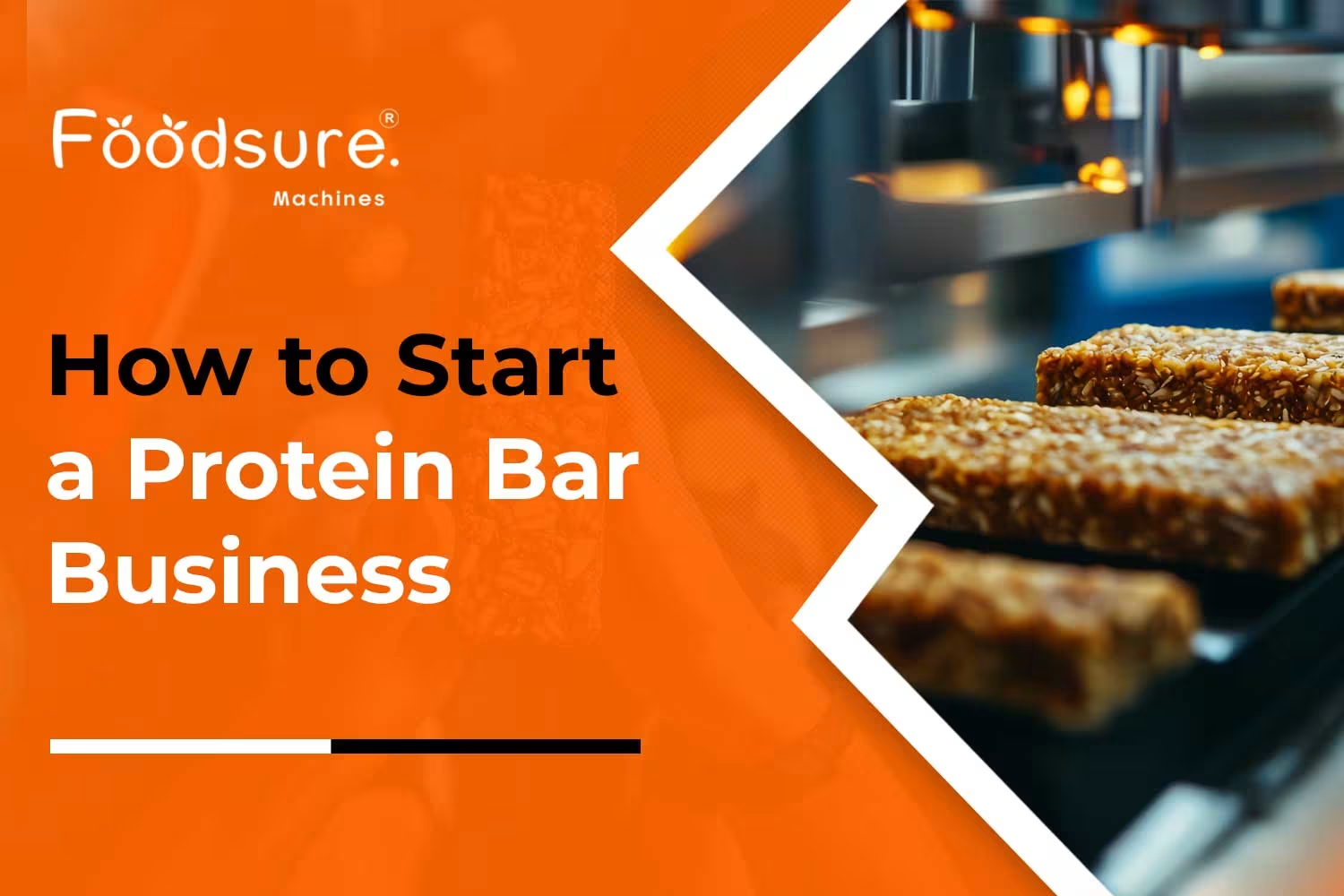
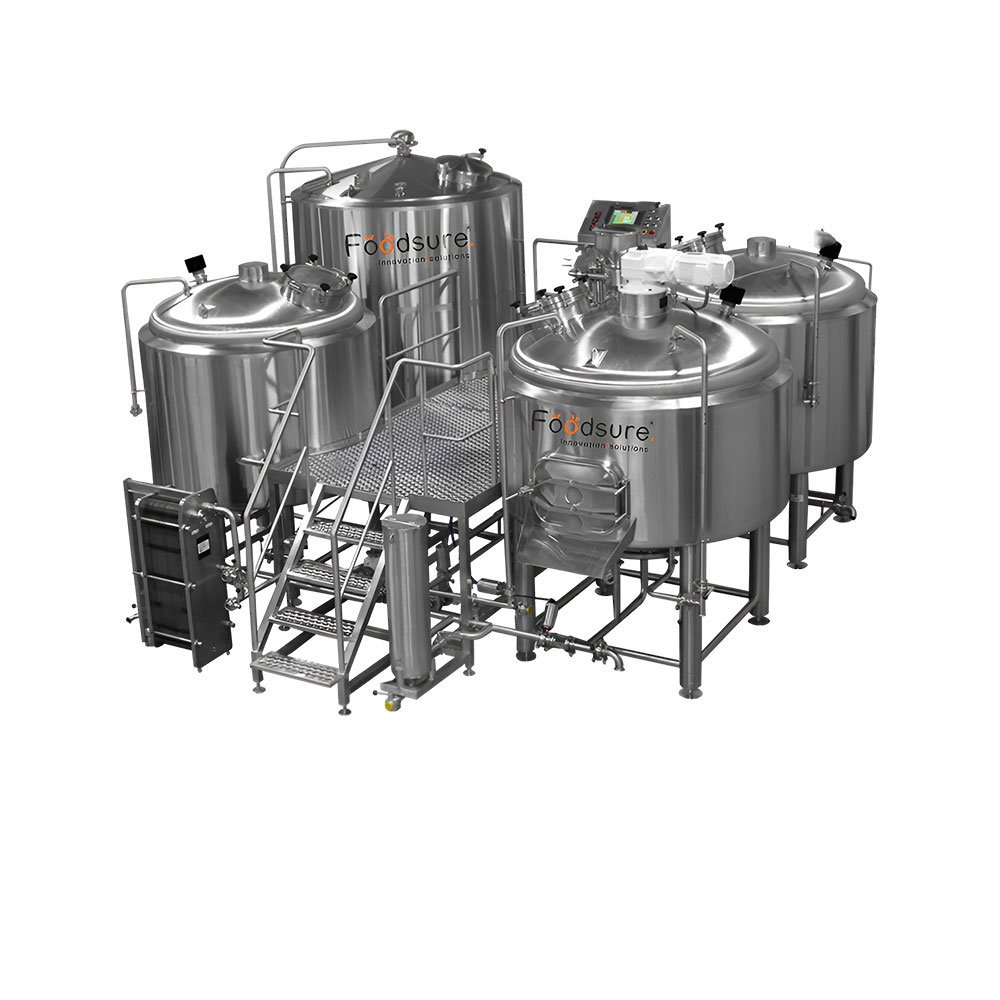
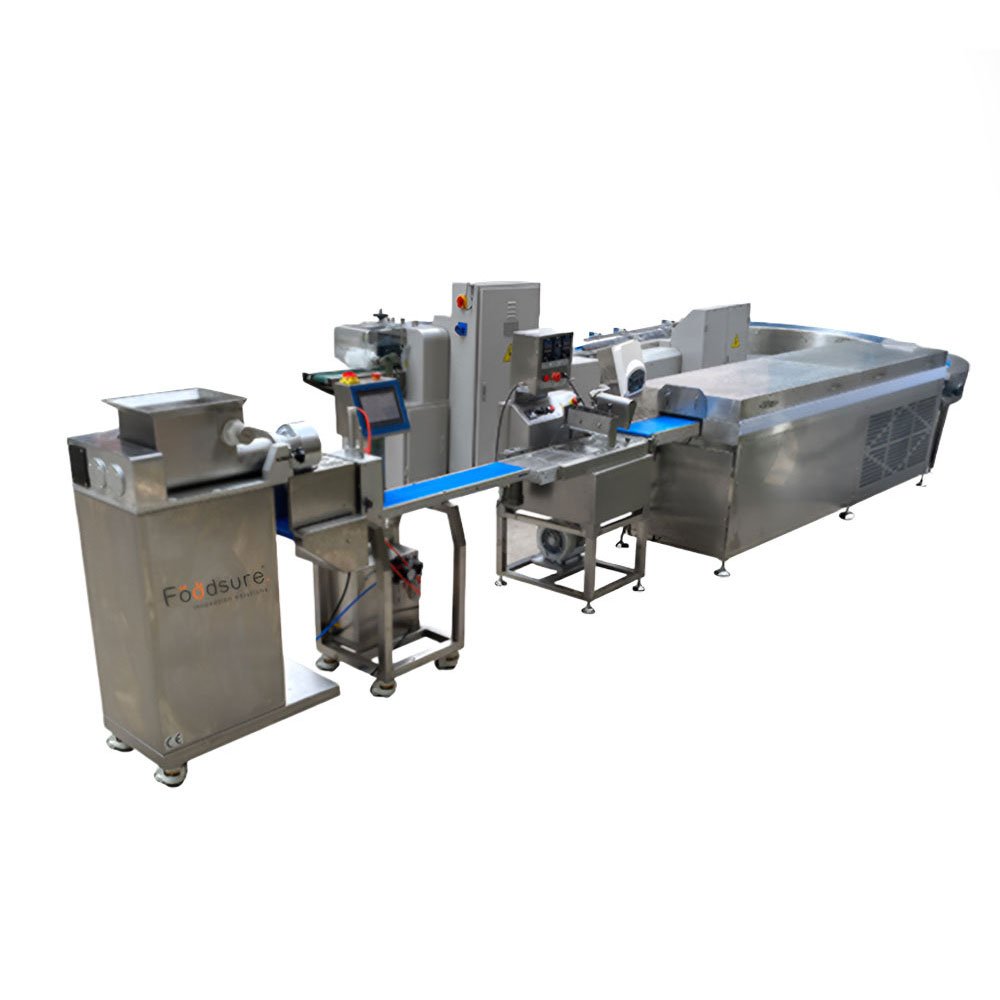
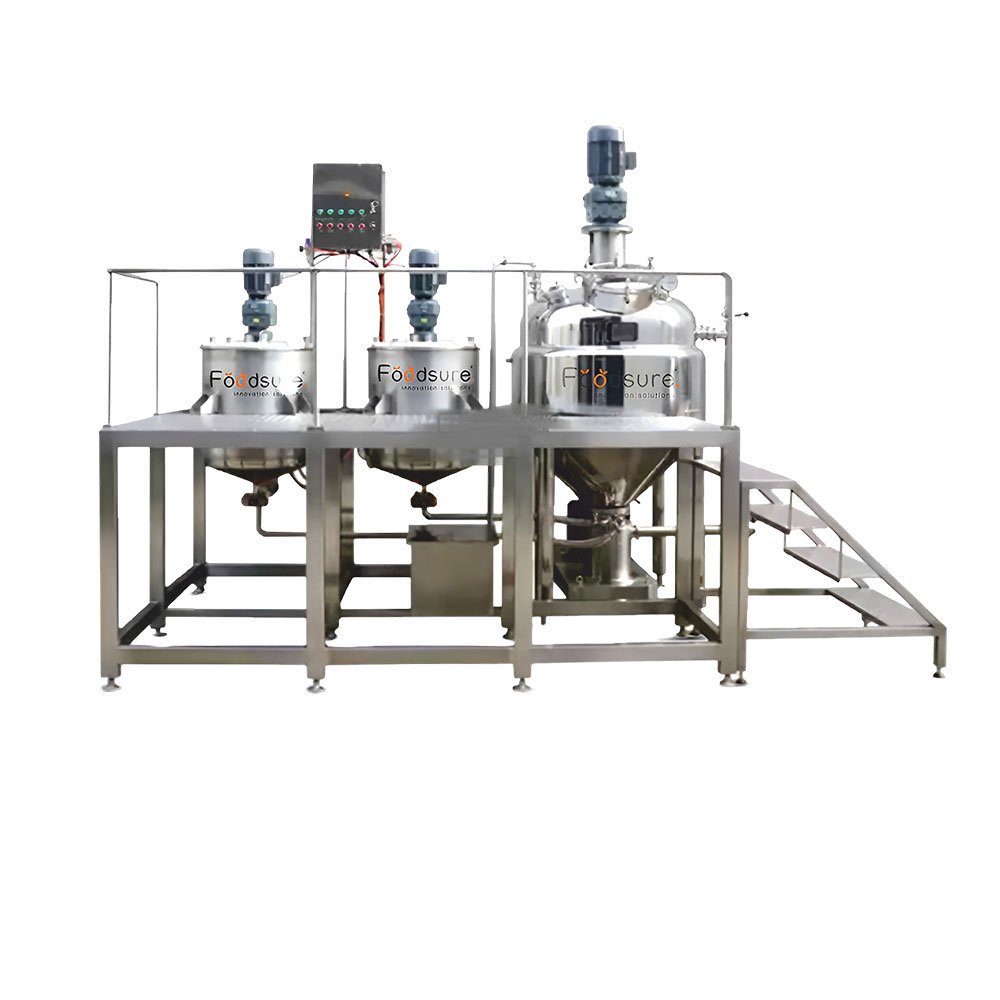
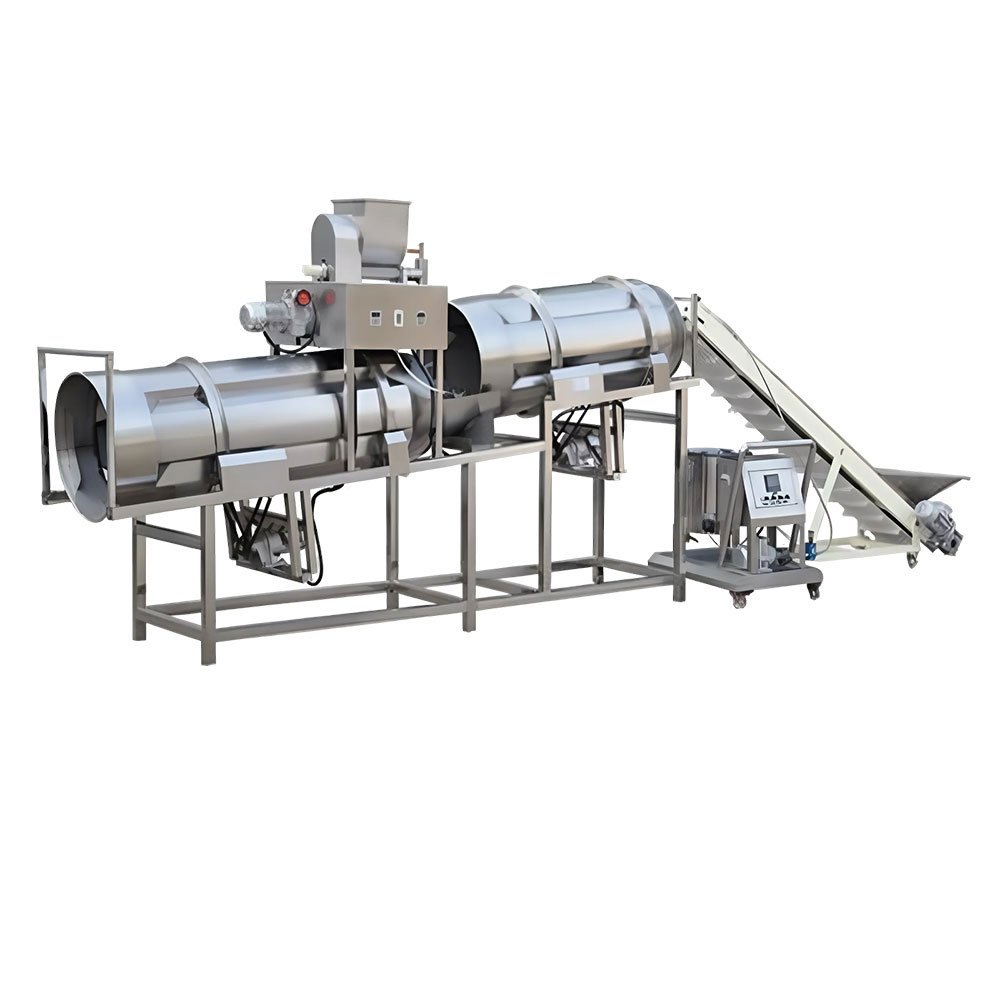
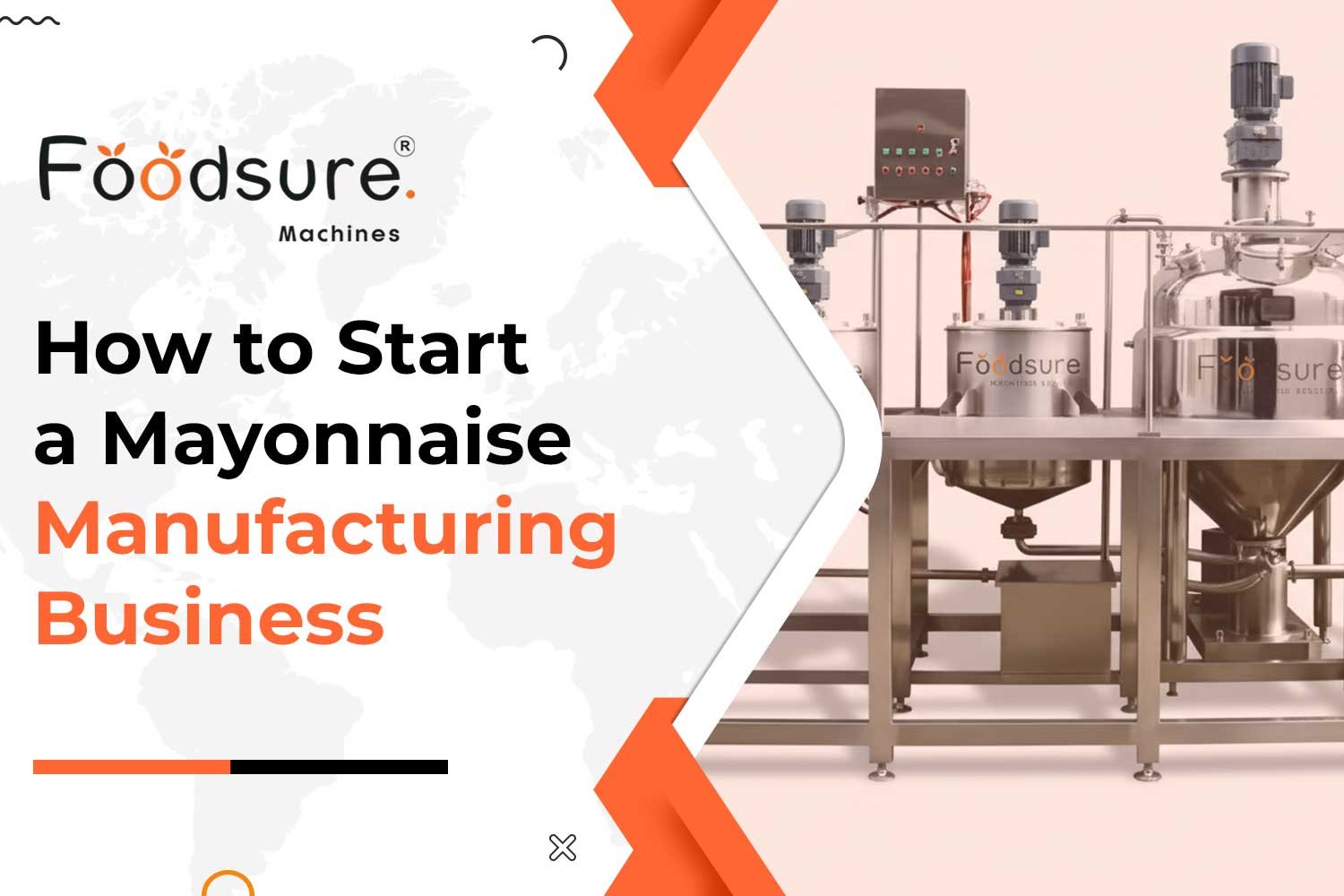
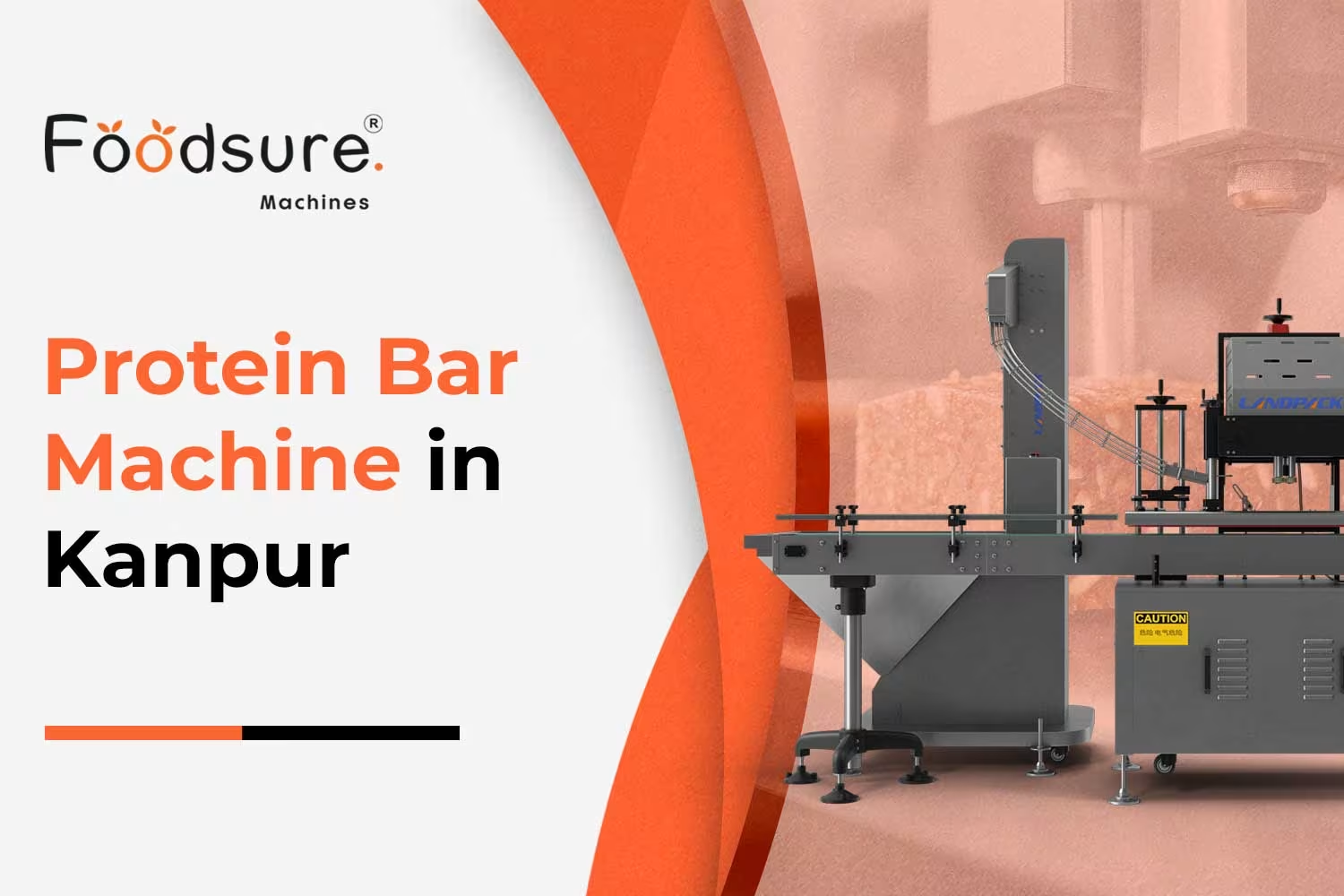
![Tomato Ketchup Market Size, Demand & Growth Trends in India [2025]](https://foodsuremachines.com/wp-content/uploads/2025/09/Tomato-Sauce-Business-copyTomato-Ketchup-Market-Size-Growth-Trends-in-India-2.avif)
